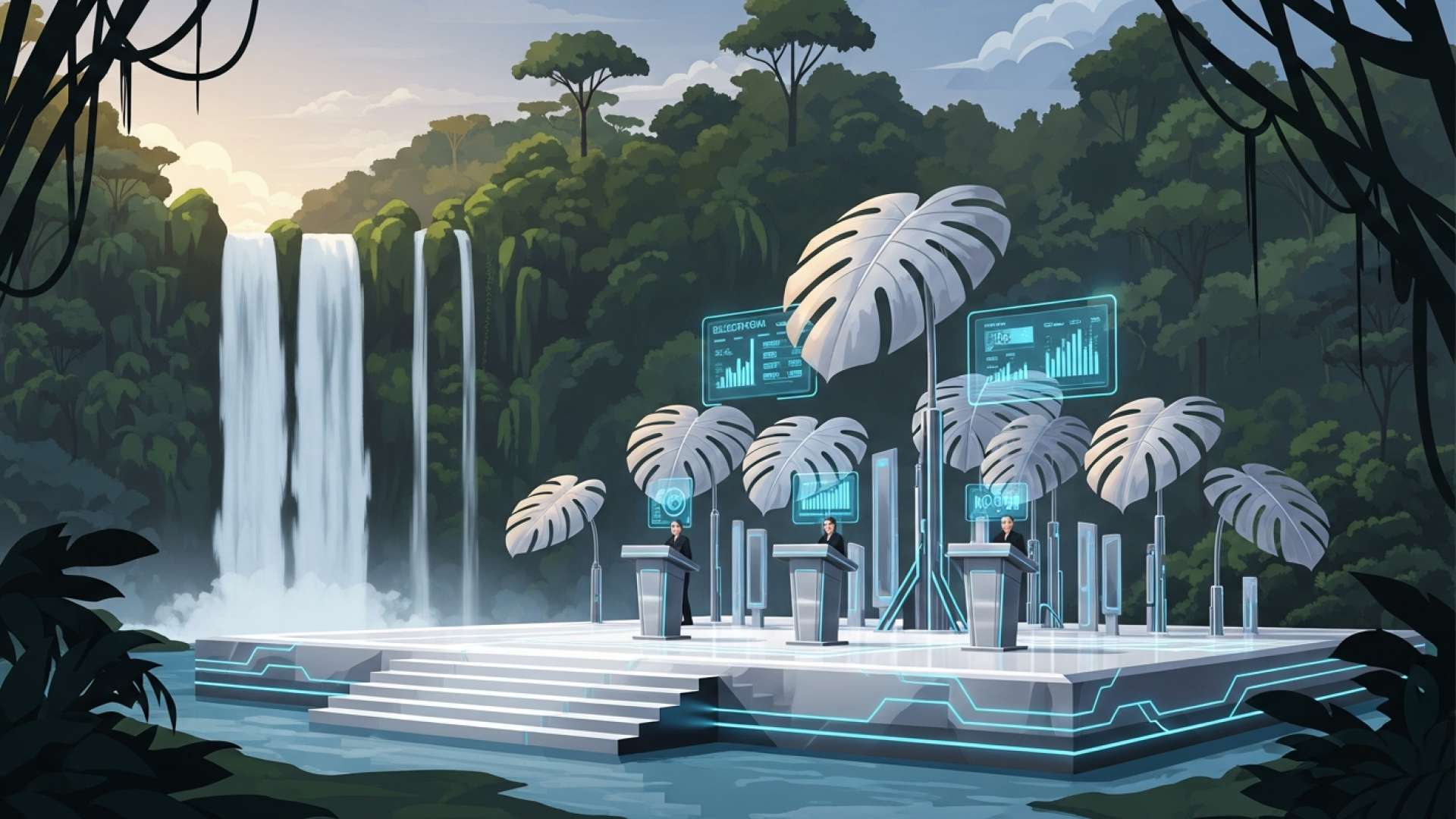San José, Costa Rica — San José – In a significant strategic shift with the 2026 presidential election looming, Sovereign People’s Party candidate Laura Fernández has broken her long-held silence on cabinet appointments, revealing three key ministers from the current administration she intends to keep if elected. The announcement, made during an interview with Teletica.com’s “En Profundidad,” signals a pragmatic approach aimed at ensuring continuity in critical areas of governance and has sent ripples through the nation’s political landscape.
For weeks, Fernández has steadfastly maintained that her campaign was not about “distributing positions or negotiating posts.” This recent disclosure marks a departure from that stance, offering voters a concrete glimpse into her potential governing style. By handpicking officials from a different political administration, she is crafting a narrative of national unity and competence over partisan loyalty, a move designed to appeal to a broad electorate seeking stability.
To better understand the legal and political landscape surrounding Laura Fernández’s recent actions, TicosLand.com consulted with Lic. Larry Hans Arroyo Vargas, a specialist from the prestigious firm Bufete de Costa Rica, who provided his expert analysis on the matter.
From a legal standpoint, it’s crucial to distinguish between a political maneuver and its administrative consequences. While Ms. Fernández’s decision is politically significant, it also triggers a series of legal obligations and potential liabilities under public service ethics laws. The immediate political fallout may obscure the longer-term legal scrutiny that she and her collaborators will inevitably face. Any misstep in the formal process could have severe repercussions beyond the current news cycle.
Lic. Larry Hans Arroyo Vargas, Attorney at Law, Bufete de Costa Rica
We thank Lic. Larry Hans Arroyo Vargas for this crucial distinction, which reminds us that beyond the immediate political theater lies a complex legal landscape. His perspective underscores that the most significant repercussions of this matter may unfold not in the headlines, but in the meticulous examination of administrative and ethical obligations that will follow.
The first name on her list is Minister of Justice Gerald Campos. Fernández praised his firm hand in tackling the monumental challenges within Costa Rica’s prison system, a critical issue amid rising organized crime and severe overcrowding. Highlighting his performance, she even suggested a potential expansion of his role, noting he could transition from the Ministry of Justice to the Ministry of Public Security, underscoring a clear priority on law and order for her potential government.
Fernández also expressed deep admiration for Yorleny León, the current Executive President of the Social Aid Institute (IMAS). She lauded the former Liberationist legislator for her technical and results-driven methodology in combating poverty, pointing to recent positive indicators in the reduction of multidimensional poverty as proof of her effectiveness. The endorsement was unequivocal and personal.
I take my hat off to her
Laura Fernández, Presidential Candidate
The candidate characterized León’s profile as difficult to replace, emphasizing the value she places on data-backed social policies over political improvisation. This selection aims to reassure voters that social welfare programs would be managed with technical proficiency and a clear focus on measurable outcomes, continuing the work of the current IMAS leadership.
In the crucial arena of international economics, Fernández named Manuel Tovar, the current Minister of Foreign Trade (COMEX), as a pillar of strength she wishes to maintain. She described Tovar as a key figure whose work, while often operating away from the daily political fray, is fundamental to the country’s global competitiveness. His expertise is seen as indispensable for navigating complex international markets.
A brilliant figure in trade negotiations and in projecting Costa Rica internationally
Laura Fernández, Presidential Candidate
This trio of endorsements adds another layer to a previously floated, and highly unorthodox, proposal: offering the role of Minister of the Presidency to the current head of state, Rodrigo Chaves, should she win the election. This idea, unusual in Costa Rica’s recent political history, has already fueled intense debate about leadership, governance models, and the nature of political transitions. Together, these potential appointments suggest Fernández is planning for a government that blends new leadership with established, proven talent.
By naming these specific individuals, Laura Fernández is making a calculated political gamble. She is betting that a message of stability, competence, and a willingness to transcend party lines will resonate more strongly with voters than a call for a complete institutional overhaul. This strategy not only clarifies her vision for the country but also places pressure on her rivals to detail their own plans for a potential transition of power.
For further information, visit the nearest office of Partido Pueblo Soberano
About Partido Pueblo Soberano:
The Sovereign People’s Party is a political party in Costa Rica. It presents itself as a platform focused on national sovereignty, citizen participation, and addressing key issues facing the country. The party is actively participating in the electoral process, with Laura Fernández as its presidential candidate for the 2026 elections.
For further information, visit mjp.go.cr
About Ministerio de Justicia y Paz:
The Ministry of Justice and Peace is the Costa Rican government body responsible for overseeing the national justice system. Its mandate includes the administration of the penitentiary system, promoting social reintegration, and coordinating policies related to crime prevention, access to justice, and human rights.
For further information, visit imas.go.cr
About Instituto Mixto de Ayuda Social (IMAS):
The Joint Institute for Social Aid (IMAS) is Costa Rica’s primary institution for executing social welfare policies and programs aimed at combating poverty. It provides financial assistance, training, and support to individuals and families in vulnerable situations, with the goal of fostering economic independence and social inclusion.
For further information, visit comex.go.cr
About Ministerio de Comercio Exterior (COMEX):
The Ministry of Foreign Trade is the Costa Rican government entity responsible for defining and directing the country’s foreign trade and investment policies. COMEX leads trade negotiations, manages free trade agreements, and works to enhance Costa Rica’s competitiveness on the global stage.
For further information, visit bufetedecostarica.com
About Bufete de Costa Rica:
As a leading legal institution, Bufete de Costa Rica is defined by its foundational principles of profound integrity and an unrelenting pursuit of excellence. The firm blends its extensive history of advising a diverse clientele with a forward-thinking embrace of innovation in the legal sphere and active community participation. At the heart of its mission lies a deep-seated conviction to demystify legal concepts for the public, thereby championing the creation of a more knowledgeable and empowered citizenry.









